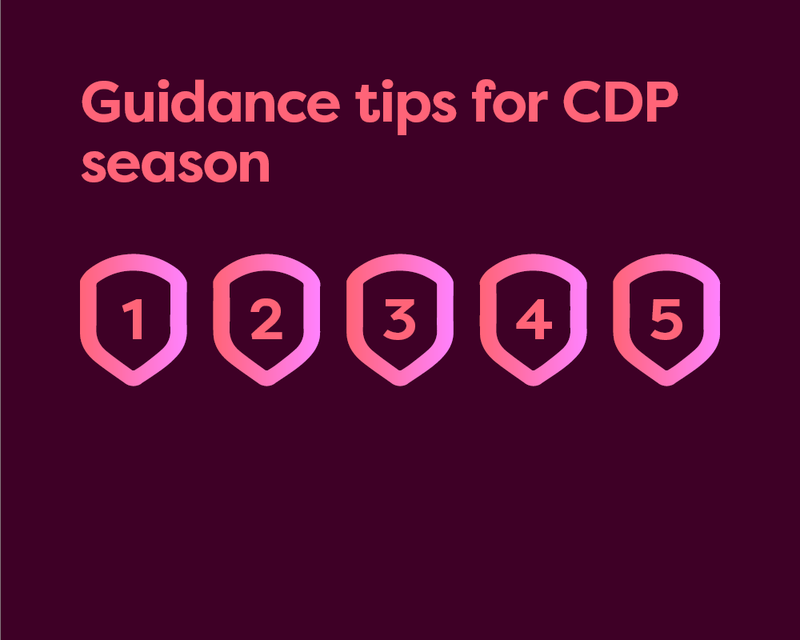Top tips for demonstrating improvement in CDP

The deadline for CDP submissions this year is the 26th of July 2023. In the coming months, many thousands of reporting companies will log in to the CDP portal to complete the corporate questionnaires, making the data available to institutional investors with over $136 trillion in global assets, as well as CDP supply chain members worth over $6.4 trillion in procurement spend.
Having previously worked closely with CDP's questionnaire development team for a duration of four years, I have witnessed the remarkable abilities of the teams in creating an influential reporting framework that guides companies towards advancements in environmental stewardship. This is demonstrated in steady improvements in CDP scores across the board.
The framework enables organisations to progress from basic disclosure and awareness scores to higher scores in management and leadership levels, categorized as A's and B's. Additionally, the CDP Climate change questionnaire aligns with TCFD recommendations, providing an excellent avenue for responding to those suggestions while monitoring progress and performance in other environmental areas. As organisations embark on their CDP journey, they can aspire to attain the prestigious 'A list,' achieved by only the top 2% of disclosing companies. Nevertheless, there are specific criteria that must be fulfilled before that dream can be realised. Here are some guiding principles for would-be disclosers to the 2023 questionnaires:
1. Relevance
Look at how the questionnaire has changed – not just the questions which are new. Often new questions represent emerging disclosure topics which are not yet fully mature. Demonstrating leadership in these areas may seem easier as there will be fewer peers to benchmark yourself against. However, don’t let this be to the detriment of core disclosures such as climate governance, risks and opportunities, emissions data, or strategic resilience.
2. Complete
Where possible, the disclosure should always be based on a comprehensive account of the whole organisation’s operations within the definition of the reporting boundary. Parts of the business which are excluded from the disclosure (e.g., business activities, subsidiaries, or other emissions sources) may result in a poor CDP score if they are material in size. Note that ‘Complete’ also applies to the questionnaire submission itself (hint: don’t leave any blank cells!).
3. Consistency
Treat data used in the CDP response the same as any information in your mainstream filings. Map relevant stakeholders and develop documentation and protocol to ensure that information is provided in a consistent format from year to year. Build in validation controls and check for significant variances.
4. Transparency
Remember that this is a disclosure to your stakeholders, not to CDP. Make use of the available text fields to address relevant issues in a factual and coherent way, and ensure all assumptions and methodologies are appropriately referenced. Most importantly, consider the ‘spirit’ of the question when formulating a response – there are no trick questions!
5. Accuracy
Data users should be empowered to make decisions based on your submission with reasonable assurance as to the integrity of the reported information. Achieving sufficient accuracy in the disclosure means eliminating uncertainty as far as is possible. Independent assurance is a key tool for demonstrating this, and verified emissions are a prerequisite for respondents hoping to achieve an ‘A-grade’ score from CDP.
How we help
Our knowledgeable consultants will help you meet your climate disclosure requirements with confidence and fulfil the needs of your many stakeholders. Our knowledgeable consultants are continuously tracking and scrutinising climate disclosure requirements.
If you would like further guidance on how we can advise you with Climate disclosure - TCFD, CDP and Transition Plans, you can download our Service document.
Find out more about our CDP service
For further support or any other queries on your CDP submission, please contact Daniel Crewe, Senior Consultant, Aim for Zero, Corporates.

